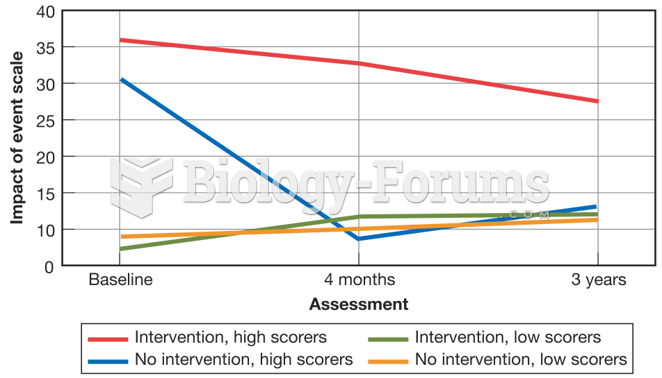Answer to Question 1
A
Feedback
A Correct. The most important intervention for the child with autism diagnosed before the age of 5 is generally considered to be early and intensive educational services. If interventions are begun before the age of 3, they may lead to better overall outcomes.
B Incorrect. Starting the child in 1st grade close to 7 years old is not the most important intervention in autism.
C Incorrect. Hiring a school tutor to help the child keep up with homework is not the most important intervention in autism.
D Incorrect. Having siblings spend a great deal of time with the child with autism is not the most important intervention.
Answer to Question 2
C
Feedback
A Incorrect. Upon hearing the mother of a 6-month-old baby says that she gets her to go to sleep by giving her a bottle of milk to suck on until she falls asleep, the nurse's best response would not be: You need to be watching your baby on a monitor or there the baby cannot see you.
B Incorrect. Upon hearing the mother of a 6-month-old baby says that she gets her to go to sleep by giving her a bottle of milk to suck on until she falls asleep, the nurse's best response would not be: Be sure you prop the bottle well and the baby's head is slightly elevated.
C Correct. Upon hearing the mother of a 6-month-old baby says that she gets her to go to sleep by giving her a bottle of milk to suck on until she falls asleep, the nurse's best response would be: Letting a child fall asleep with a bottle of milk or other liquid containing sugar will cause cavities.
D Incorrect. Upon hearing the mother of a 6-month-old baby says that she gets her to go to sleep by giving her a bottle of milk to suck on until she falls asleep, the nurse's best response would not be: Your baby is old enough to hold her own bottle, and this builds independence and self-esteem.







